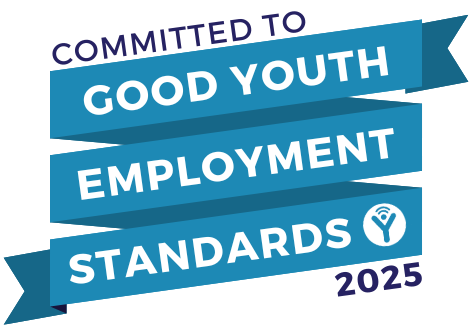The background
Location: Great Britain
Client: National Grid Gas Transmission (NGGT)
Project: Competence Management and Authorisations Project
Dates: 2021 to Present
Whilst still in the early stages, our Cogent Skills CMS framework innovation has delivered some great business results so far.
It's improved the end-to-end competency management process across Gas Transmission, enabled a more robust demonstration of competency evidence across a national geographical spread to the operational field force, and significantly reduced the time it would normally take through our traditional safety and technical competency plan for individuals to achieve authorisations
Adrian Chapman
National Grid. Operations Manager, Gas Transmission and Metering
Lessons Learned from National Grid's Competence Management Systems (CMS) Framework Update
- Align CMS to Compliance and Business Critical Needs. Do not underestimate POLICY and PROCEDURAL requirements
- Address ALL Competence Requirements. Start with a PILOT project. National Grid has a national geographical spread of assets and workforce, across many disciplines = many layers of competence. Start small, prove principles, demonstrate assurance, then prepare for roll out
- Evolution versus Revolution. Take small steps in the right direction - important to demonstrate assurance
- Cultural Change is very important. Supervisors need to be involved in helping develop the framework and processes, and in moving from the theoretical to practical stages of the changes required
- Develop a Change Management Plan. Do it sensibly and responsibly
The scope
NGGT manages and maintains 5,000 miles of high-pressure gas transmission assets and operations across the length and breadth of the UK - making natural gas available when and where it's needed.
Over 500 Instrumentation, Electrical and Mechanical maintenance and operational field staff are involved with most involved with emergency & duty call out responses and some others on a 24/7/365 shift basis. They work across the length of National Grid's buried steel gas transmission pipework, which is located between the north of Scotland, across to the very tip of Wales, then over to the East and down the South coast of England (pictured right).
This includes 600 above ground installations and offtake sites, 23 compressor stations and 2 gas reception terminals in the North East of Scotland and Norfolk.
The process safety hazards relating the high- pressure gas transmission network include rotating machinery, compressor units, high pressure gas, electrical systems, oil systems, and 3rd party interference on pipelines.
These geographically dispersed field staff need an up-to-date Competency Management System to ensure that their maintenance and operational skills, knowledge, experience, training, attitudes and behaviours help to protect them from the risks posed by the occupational and process safety hazards apparent in their work.
With many layers of field team operational response requirements, the overlay of different competences made it a challenge for National Grid to have a deep understanding and control of site staff's safe performance.
The Timeline
Q2 2021
Due diligence and comprehensive supplier research. Cogent Skills
awarded CMS contract due to their specialist experience in the delivery of competency projects for large organisations
Q3 2021
Collaboration between Cogent Skills and NGGT’s Operational Service Delivery Team and Competency Management Framework panel to identify key requirements. Trial project
preparation
Jan 2022
Initial 10-week trial pilot project
completed with 4 new starters on NGGT’s West area via controlled implementation. Reviews of process assurances, Permit to Work authorisations, early successes and learnings. Proved the principle of the framework and able to progress
May 2022
Second stage assessments of initial 4-person trial. Trial expansion to additional 10 people and 1st line managers across all of the UK areas – focused on different disciplines. Confirmation that CMS and
authorisations are working. Future roll out plans in preparation.
Ongoing…..
The challenge
NGGT needed to innovate and change from using hundreds of legacy spreadsheets to a singular policy and management procedures document, with an up-to-date, compliant Competence Management System framework system - which included all operational procedures, across the length and breadth of their 5,000 miles of field operations.
NGGT had a 25-year-old Safety and Technical Competence Framework in place, which included internal processes for authorisations within their permit to work systems, but this was in the form of hundreds of work procedure documents all contained in Excel spreadsheets. The spreadsheets contained training, knowledge and experience requirements - mainly focused on the basis that training equals competence.
The business wanted to review and upgrade these legacy Safety and Technical Competence frameworks, by introducing an industry best practice pilot study to develop an innovative Competency and Authorisations project - focusing on improving the end-to-end competency management process across Gas Transmission.
NGGT's new Competency and Authorisations project needed to provide assurance to enforcement agencies that their new competence management framework included the most up to date compliance to regulatory competence requirements for their major accident hazard operations.
To improve their Competence Management Systems (CMS) Framework, NGGT turned to Cogent Skills because of their many years of high hazard industry experience, backed up by the fact that the HSE recognises Cogent Skills as the main skills body for competence.
Another contributing factor was due to Cogent Skills' involvement in facilitating the development of the Process Safety Management training standards, which are overseen and regularly reviewed by industry stakeholders and the UK Competent Authority, who form the UK's Process Safety Management Competence Programme Board.
Traditionally we used appoint people, congratulate them on getting the job, then moved all of that to one side and say, 'you now need to do all of this National Grid training'
So it could historically take a new member of staff the best part of a year to achieve competence to actually undertake the role that we'd appointed them into.
This caused major staff retention problems, as well as significant productivity and utilisation delays
Adrian Chapman
National Grid. Operations Manager, Gas Transmission and Metering
The solution
Cogent Skills is National Grid's appointed supplier for delivering Process Safety Management training, so the business was aware of their official supplier's COMAH and major accident hazard site knowledge and experience, but they needed to understand their capabilities to review, design and implement a new CMS framework.
After due diligence and comprehensive supplier research, in 2021, NGGT appointed Cogent Skills due to their specialist experience in the delivery of competency projects for large organisations.
The key aims of this project being to not only understand the field staff's skills, underpinning knowledge and behaviours / attitude elements, which are particularly important in safety critical, high hazard industries, but also to develop an up-to-date system which complies to current hazardous area regulatory requirements, improve their workforce's competence and safety by reducing the risk of harm to people, assets and the environment.
The project started with a collaboration between Cogent Skills and NGGT's Operational Service Delivery Team and Competency Management Framework panel (which included a subject matter expert and a senior manager), to review their Competency and Authorisations processes and map out critical and standard competence and behavioural requirements for each role - aligned to competencies within the permit to work system which will allow personnel to undertake work unsupervised. Line managers then detailed what would be included in the mentoring and the job training for specific work activities.
The NGGT panel bunched tasks into families which included all of the related safety competence procedures in one job and then reduced the lines of competency per person from 400+ down to no more than 40-50 - with an overlay of permit requirements.
It was decided to conduct a CMS pilot trial focused on 14 new start Technicians, where the plan would recognise their past skills, experience, knowledge and training / qualifications, then looked at their competencies via a mentor who shadows, supports and guides them, in readiness for an assessment against a competency plan. This would then be signed off by the individual, a supervisor and the mentor. To progress the individual to the point of assessment.
The trials have been extremely valuable in substantiating what works, what works well, what doesn't work and what we need to change.
Our Cogent Skills CMS framework innovation has improved the end-to-end competency management process across Gas Transmission, enabled business improvements across a national geographical spread to the operational field force and halved the time it would take through our traditional safety and technical competency plan
Adrian Chapman
National Grid. Operations Manager, Gas Transmission and Metering
This CMS assessment process would replace the traditional annual new starter training plan. The new CMS framework includes a combination training and field-based assessment focused reviews - aligned to the NGGT's panel collaboration outcome requirements, conducted over three 10-week loops, which consisted of:
- Initial 10-week for foundation competencies for low criticality tasks
- A 2nd competency review addresses more medium criticality type tasks
- The 3rd 10-week period we would advance to core competencies and high criticality type tasks.
The assessment of on-site competence is demonstrating the delivery of a more robust CMS framework. NGGT's panel process also allows the business to understand where the requirements lay for the assessment of higher criticality of competence tasks.
Pilot Competence Management System Upgrade Activities:
- A deep dive review of task and risk versus demonstrable competency requirements
- A review and revision of existing competency policies, procedures, documentation and roles to simplify our internal rules
- Move to a single transparent, competency management system holding all related records and remove the legacy Safety and Technical Competency (STC) spreadsheets
- Change the focus from training to implementing assessment- based processes for work tasks and progressive authorisations being achieved on a criticality basis. High criticality tasks includes a competency panel process review.
- Implement a panel review process to assess new starters' competency in the field against high-risk tasks.
- A system to credit what new starters bring to the business, in terms of their own qualifications, knowledge and experience
We've changed our thinking that training equals competence, to focusing on the fact that assessment provides a true reflection of a person's workplace competence
Adrian Chapman
National Grid. Operations Manager, Gas Transmission and Metering
The impact
Improved Productivity and Regulatory Compliance. From 1 year to 30 weeks, the new CMS is recovering operational time, as the saving of training time means increased productivity - with systems aligned to regulatory requirements.
Reduced annual training activities, replaced with 10-week assessments saving almost half the time it would take for workers to progress through NGGT's traditional safety and technical competency plan.
The drumbeat of 10-week assessment schedules aims to sign people off as competent on a progressive basis, rather than waiting for an annual review to try sign everything off in one go is resulting in higher operational productivity and stronger evidence of compliance for the regulatory reporting.
More Positive Outcomes:
- Robust Competency Evidence. Through the CMS the demonstration of competency through familiarisation, training, qualifications and field-based work task assessment is much more robust and evidence based
- Regulatory Compliance. Now managing risks robustly via the CMS, which provides evidence to demonstrate to regulators. Response to Q.2. 2022 HSE Management of Change presentation inspectors were extremely pleased that NGGT are moving towards field-based assessment arrangement for managing competency rather than being overly reliant upon training
- Safety. Improved the safety risk across a massive geographical spread
- Motivation. Develop a more engaged Operational Field Force
- Cost Savings. Deliver financial savings to customers
- Company Wide Competence Roll Out. Following initial 10-week West Area trial, the full CMS framework has now been 'proved in principle', with an agreed Deviation to Policy for the trial in place. There are now preparations for Full Roll Out to cover all Areas
- Ongoing Project Culture Change Acceptance. Permit authorisations being approved on a progressive basis by Area Managers. Acceptance of movement from old ways and transactional management to line management ownership following ongoing support to relevant staff. Competency Records now held in internal system and the significant cultural change being adopted by Supervisors/First Line Managers.
Competency management is about so much more than just training.
It's about understanding the tasks we carry out, the risks associated and the skills, knowledge, experience and training an individual needs to be able to demonstrate they can manage the risk robustly to deliver the task safely.
By getting this right, we can give our front-line engineers real confidence in delivering work safely and get new starters more productive sooner against low risk, high-volume tasks.
This will ultimately improve safety, provide a more engaged workforce and deliver financial savings to our customers.
Kevin O'Neill
National Grid Gas Transmission. Operational Service Delivery Team Lead. Chair of IGEM TD102 (Competency Management Framework) Panel







